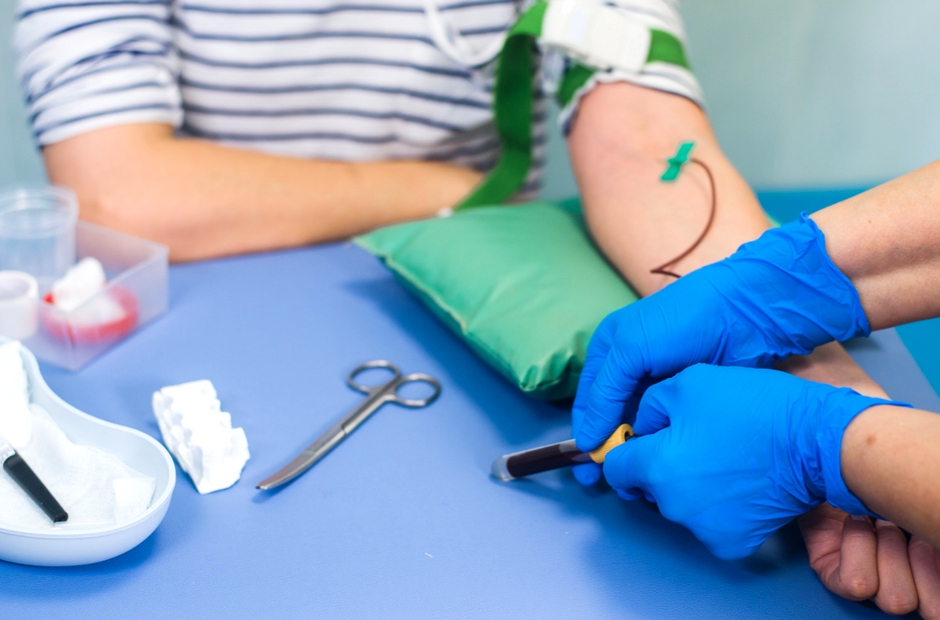Is a Career as a Phlebotomist Right for you? Discover the pros, Cons, and What It Takes
Are you considering a career in healthcare that offers meaningful work, steady job prospects, and the opportunity to make a difference in peopel’s lives? If so, becoming a phlebotomist might be an excellent fit for you. Phlebotomists play a vital role within medical settings by collecting blood samples for testing, transfusions, and donations. But is this healthcare profession suitable for your personality, goals, and lifestyle? in this comprehensive guide, we’ll explore the pros and cons of being a phlebotomist, what skills and qualifications are necessary, and practical tips to help you decide if this career path aligns with your aspirations.
What Is a Phlebotomist?
A phlebotomist is a healthcare professional trained to draw blood from patients for medical testing, blood donations, or transfusions. Thier work is crucial for diagnosing illnesses, monitoring health conditions, and supporting blood banks. Phlebotomists frequently enough work in hospitals, clinics, laboratories, and blood donation centers, making their role central in the healthcare ecosystem.
Pros of a Career as a Phlebotomist
1. High demand and job Security
- Growing healthcare industry: the need for diagnostic tests and blood donations is rising, leading to increased demand for phlebotomists.
- Steady employment opportunities: Healthcare professionals, including phlebotomists, enjoy strong job stability due to essential services.
2. Relatively Fast Certification Process
- Short training programs: Most states require only a few months of training and certification to become a phlebotomist.
- Affordable education: Certification courses are often cost-effective compared to other healthcare training programs.
3. Flexible Work Environment & Schedules
- Variety of settings: Work in hospitals, clinics, mobile blood donation units, or laboratories.
- Potential for flexible hours: Some positions offer evening, weekend, or part-time shifts, perfect for balancing family or studies.
4. Personal Fulfillment & Impact
- Help save lives: Blood collection and testing are critical to medical diagnoses and treatment.
- Build patient rapport: Reassuring patients during blood draws can foster meaningful interactions.
Cons of a Career as a Phlebotomist
1. Physically Demanding & Sometimes Stressful
- Physical demands: Standing for long periods, repetitive movements, and handling patients can lead to fatigue.
- High-pressure situations: Tough veins, anxious patients, or urgent testing can increase stress.
2. Exposure to Biohazards & disease Risks
- Safety precautions needed: Working with blood and bodily fluids requires proper training and protective gear to prevent infections.
- Potential health risks: Despite precautions, accidental exposure remains a concern.
3. Limited Career Advancement Opportunities
- Role specialization: Advancement often involves further education, such as becoming a medical technologist or moving into management roles.
- Career plateau: In some settings, growth may be limited without additional qualifications.
4. Emotional Challenges
- Dealing with patient anxiety or distress: Some patients fear needles, making blood draws emotionally taxing.
- Handling difficult situations: Loss of patience or rejection can be discouraging.
What it Takes to Become a Phlebotomist
Necessary Skills & Qualities
- Strong interpersonal skills: Comfortably communicating with patients of all ages and backgrounds.
- Attention to detail: Ensuring accurate blood collection and labeling.
- Manual dexterity: Precise hand movements for drawing blood efficiently.
- Physical stamina: Capability to stand for long periods.
- Emotional resilience: Remaining calm in stressful or emotional situations.
educational & Certification Requirements
The typical pathway involves:
| Requirement | Description |
|---|---|
| High school Diploma or GED | Minimum educational qualification needed before training. |
| Phlebotomy Training Program | Completing a certified program, usually lasting 1-4 months. |
| National Certification (e.g., NHA, ASCP) | Optional but recommended for better job prospects; required in some states. |
| State Licensure | Varies by location; check local regulations. |
Practical Tips for Aspiring Phlebotomists
- Choose accredited training programs: Verify provider accreditation for quality education.
- Gain hands-on experience: Look for internships or externships during your training.
- Develop soft skills: Practice patience and empathy with patients.
- Stay updated with safety protocols: Regularly review OSHA and CDC guidelines.
- Network with professionals: Attend industry events and join relevant associations.
Case Study: A Day in the Life of a Phlebotomist
Jessica, a certified phlebotomist working at a busy hospital, begins her shift by preparing her supplies and reviewing her patient list. Throughout the day, she encounters patients ranging from anxious children to tired elderly individuals. Jessica uses her gentle approach to ease patient nerves, draws blood efficiently, and ensures all samples are correctly labeled and processed. Despite some challenging veins, her calm demeanor helps her to handle stressful situations smoothly. Jessica finds her work rewarding because she directly contributes to accurate diagnoses and lives saved daily.
Benefits and practical Tips
- Build confidence: Practice your skills consistently.
- Maintain professionalism: Respect patient privacy and follow protocols.
- Continuing education: Pursue advanced certifications or related healthcare roles to enhance your career.
Is a Career as a Phlebotomist Right for You? Final Thoughts
Deciding whether to pursue a career as a phlebotomist depends on your personal interests, skills, and long-term goals. If you thrive in a healthcare environment, enjoy helping others, and can handle the physical and emotional demands, this profession could be a rewarding choice. With a relatively short training period, strong job prospects, and the chance to make a tangible difference, becoming a phlebotomist offers a practical entry point into the healthcare industry.
Conclusion
embarking on a career as a phlebotomist can be a fulfilling and stable choice for those interested in healthcare, patient interaction, and blood collection. while it comes with its challenges-such as physical demands and exposure to biohazards-the benefits including job security, adaptability, and personal impact are meaningful. As with any career decision, it’s essential to evaluate your personality, skills, and aspirations carefully. By understanding the pros and cons, and taking proactive steps to develop the necessary skills, you can determine if this healthcare profession aligns with your lifestyle and career goals.
